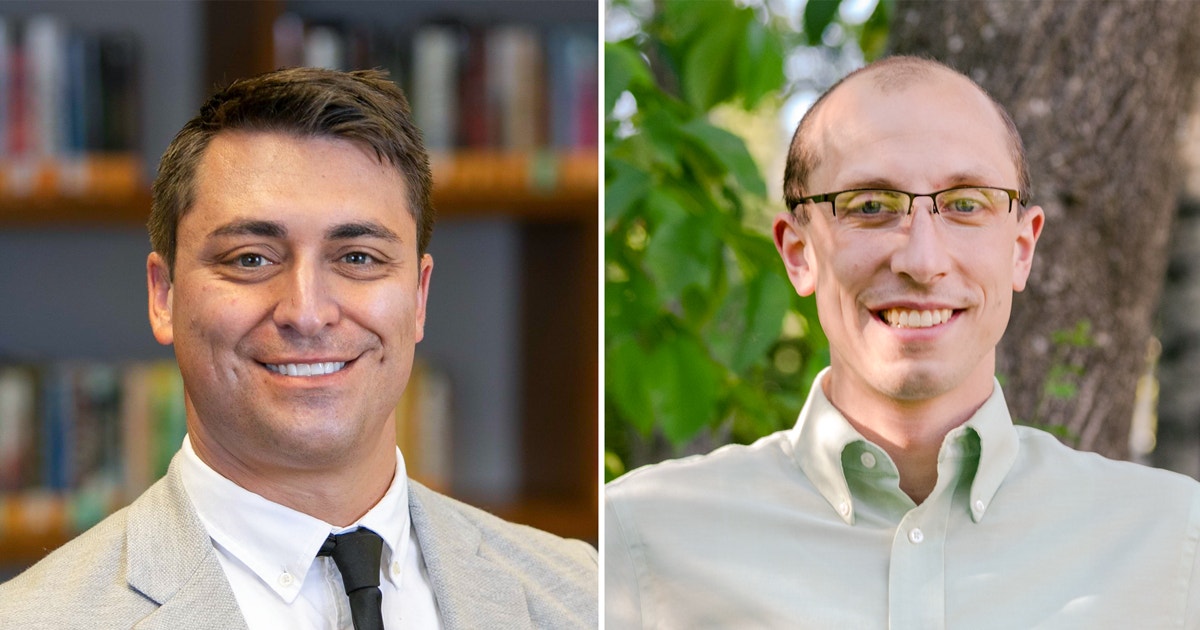The Audubon on Campus program brings together passionate individuals who are dedicated to birds and wildlife conservation. Faculty advisors like Dr. Andy Tuholski and Daniel Koenemann exemplify this commitment. As advisors, Tuholski and Koenemann have both strived to show their students that working in conservation has no limits and make sure the young leaders identify their goals and accomplish them.
Dr. Tuholski became involved in the Audubon on Campus program after students at Indiana University Kokomo expressed interest in conservation. “During COVID a lot of the student groups couldn’t physically get together to meet,” he explains. “But I had taught an environmental policy course and students wanted to start up an environmental group on campus.” Tuholski, who is both an assistant professor of political science and the Director of the Office of Sustainability, found a way to channel this enthusiasm into organized efforts.
At Indiana University Kokomo, Tuholski pairs his interest in environmental policy with what student groups are doing. “Our sustainable development goals serve as a constant reminder that sustainability is not just planting trees,” he says. “It is reducing racism [and] addressing inequality; it is making sure that access to clean water is a human right.”
According to Dr. Tuholski, students often consider environmental issues a top concern. “My students face many factors such as worrying about getting jobs and paying for expenses like groceries,” he says, “but they are also really concerned about the climate and the environment that they’ve inherited.” In September, they became the fifth certified sustainable campus in the state of Indiana. The chapter brought honeybees to campus two years ago, and now students can harvest the honey and then sell it to contribute to their projects related to sustainability on campus.
“We try to adhere to the idea of leaving it better than you found it,” he says. “That’s very common in the environmental movement and these students really believe in it. We need them to challenge the status quo that has existed, and we need them to push for a better tomorrow.”
Daniel Koenemann has also served as passionate advisor. He helped established the campus chapter at Claflin University in South Carolina while working as an Assistant Professor of Biology. Koenemann had always been interested in working with young leaders. “Part of the role of teaching is to help students mature into responsible adults who are capable of making good decisions,” he says. “It’s satisfying watching students actualize potential that they have.”
Koenemann’s interest in conservation began in college where he began to be involved in research about various wildlife and the impact of society on their habitats. Acting as an advisor at Claflin University allowed him to help student leaders work through arising problems while trying to have a positive impact. “My students often find themselves juggling tasks while having big dreams, so I must guide them in terms of taking the everyday steps necessary to accomplish those goals,” he said. “Watching the Audubon campus chapter and The Friends of the Earth learn how to work their way through processes in problems was gratifying to see.”
These days Koenemann works for the Winooski Natural Resources Conservation District in Vermont. He sees himself growing in conservation by moving away from thinking about conservation to actually participating in conservation activities. “In my personal opinion, there’s a disconnect between theory and practice,” he says. “And so trying to connect those two things, the practice and the activism with a good theoretical foundation, is something that I’m hoping to do going forward.” He continues building on his passion for conservation in this role by working on educational outreach, technical assistance, and helping private landowners conserve the resources that they have.
Investing in the future of environmental conservation and sustainability is crucial for the next generation’s well-being. Tuholski and Koenemann have inspired their students, demonstrating that the possibilities in conservation are limitless. Their mentorship has gone beyond guidance, serving as compassionate confidants who empower young leaders to identify and achieve their goals. Through their dedication, they illustrate how investing in students can elevate them to new heights in the field of conservation.
Visit Audubon On Campus for more information about the program.

